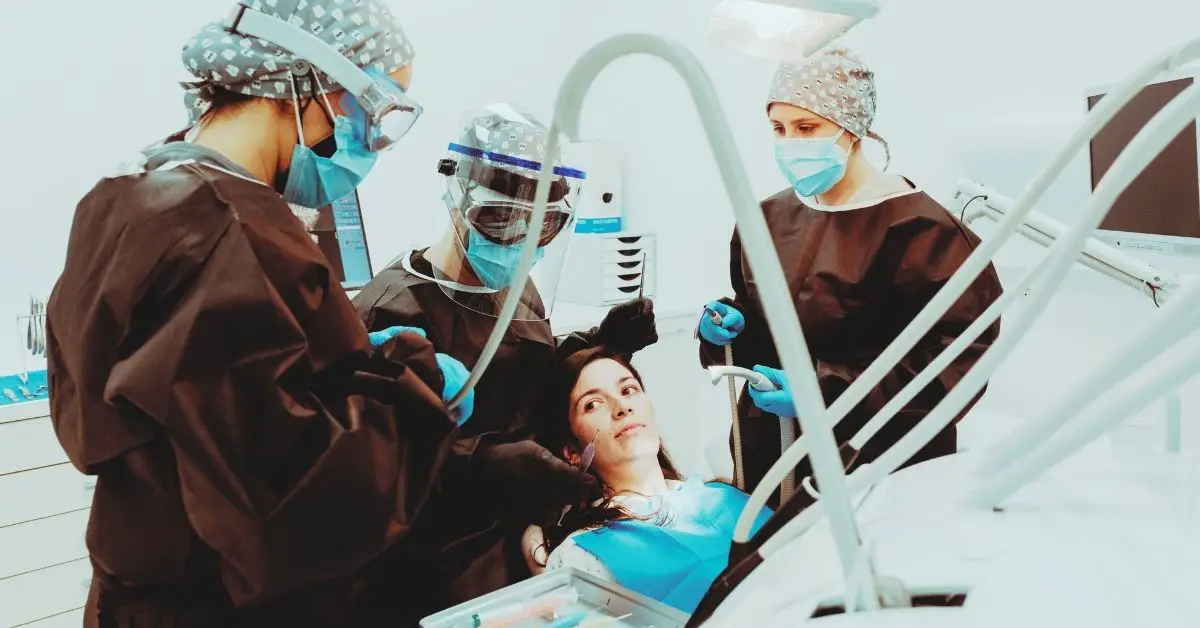This article studies the Highest Paying Dentist Jobs, so you can learn and earn more.
The dental industry has some of the highest paying faculties, including dental anesthesiology, hygiene, oral and maxillofacial surgery.
Dentistry is a fun, challenging, and rewarding career. You get to be around people all day, every day.
As the title preluded, about half of the jobs listed here require no medical degrees.
To help you better understand the profession, we reviewed 100+ salary reports from the US Bureau of Labor, Payscale, and other multi-media references.
Here are our top 10 highest-paying dentist jobs.
Here is a video summary based on this article
Similar Articles:
Table of Contents
#10. Dental Assistant
How much do they get paid?
- Source: Salary.com
- Low Range: $31,993 per year
- High Range: $49,353 per year
- Median Pay: $40,809 per year
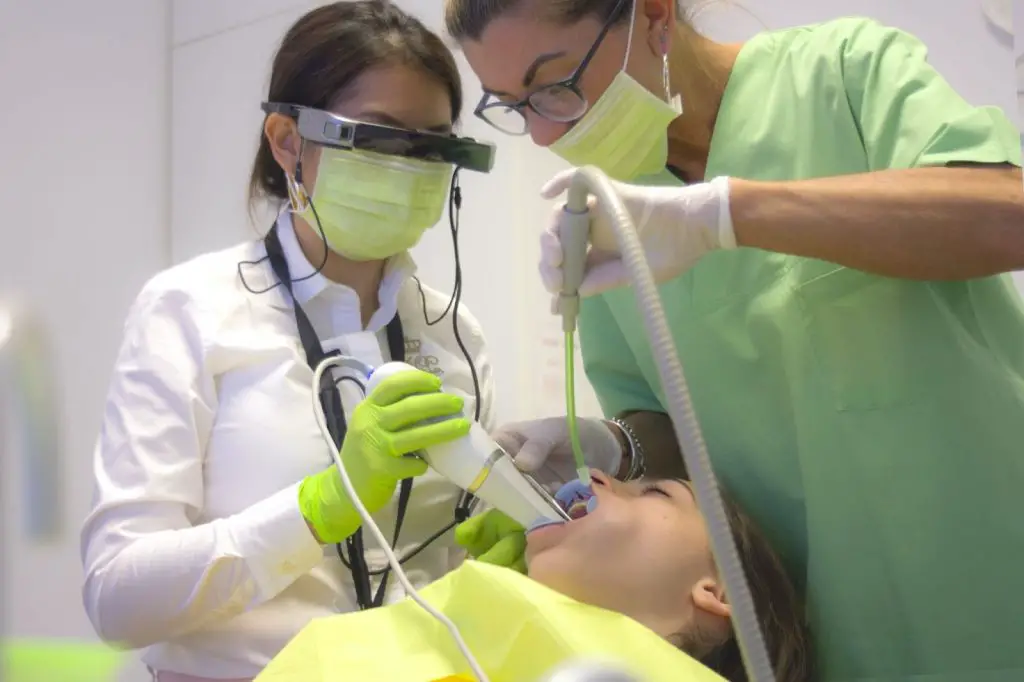
What do they do?
A dental assistant is a member of the dental team who helps the dentist with a number of different procedures, including x-rays, patient record keeping, and helping patients feel comfortable.
What degrees and skills are usually required?
Dental assistants are usually trained on the job, although some have associate’s degrees in dental assisting. Most states require that dental assistants be certified, which usually requires training, experience, and passing an exam.
Employers look for conscientious candidates who have good communication skills and an understanding of basic math.
Who’s hiring for these jobs?
Dental assistants work in dentists’ offices, often working with one dentist rather than in a hospital setting like dental hygienists. They work in both public and private settings.
What is the best way to get this job?
You should ensure you meet the requirements laid out by your state. Then apply directly to dentist offices.
What’s it like to be a dental assistant?
#9. Dental Receptionist
How much do they get paid?
- Source: Glassdoor
- Low Range: $19,000 per year
- High Range: $165,000 per year
- Median Pay: $50,652 per year

What do they do?
Dental receptionists are the gatekeepers of the dentist’s office. They are responsible for greeting patients, answering phone calls, and scheduling appointments.
In addition, they may also be responsible for billing and insurance claims and providing other administrative support to the dentists and staff.
Like all receptionists, dental receptionists must have excellent customer service skills. They must be able to multitask and handle a variety of tasks at once.
They must also be able to stay calm under pressure and have a good sense of humor – after all, dealing with whiny patients and angry insurance companies can be pretty stressful!
What degrees and skills are usually required?
You don’t need a specific degree to be a medical receptionist. But employers may prefer candidates who have experience working as a secretary in an office environment or similar roles.
Medical receptionists must be friendly, approachable, and adept at multitasking.
You should also have customer service skills, phone skills, computer literacy, basic accounting knowledge, and health insurance familiarity.
Who’s hiring for these jobs?
These professionals may find work at the front desk of a doctor’s office, a dental office, or an emergency room at a hospital.
What is the best way to get this job?
You can start by applying to jobs online through relevant company websites.
What’s it like to be a medical receptionist?
Similar Articles:
- 10 Highest Paying Engineering Jobs
- 10 Highest Paying Jobs in Agriculture
- 10 Highest Paying Decision Science Jobs To Consider
#8. Dental Biller
How much do they get paid?
- Source: Glassdoor
- Low Range: $35,000 per year
- High Range: $88,000 per year
- Median Pay: $55,040 per year

What do they do?
Dental billers are the unsung heroes of the dental office. They are responsible for processing insurance claims and billing patients for services rendered. In addition, they may also be responsible for maintaining patient records and filing insurance forms.
Like all billers, dental billers must be extremely organized and accurate. They must be able to keep track of an ever-changing billing system and be able to quickly and efficiently resolve any errors or issues that arise.
Moreover, dental billers must have excellent communication skills in order to work with both patients and insurance providers. They must be able to stay calm under pressure and handle difficult situations with tact and humor.
What degrees are usually required?
Medical billers usually have a certificate or associate’s degree in medical billing and coding from a vocational school or community college. Some medical billers have bachelor’s degrees in accounting, but this is not required. Most employers look for at least two years of experience when hiring medical billers.
Who’s hiring for these jobs?
Medical billers find work in either doctors’ offices or hospitals.
What’s the best way to get this job?
You can become a medical biller by earning a certification that allows you to start applying for entry-level jobs.
What’s it like to be a medical biller?
#7. Dental Hygienists
How much do they get paid?
- Source: Salary.com
- Low Range: $58,296 per year
- High Range: $98,289 per year
- Median Pay: $77,891 per year

What do they do?
Dental hygienists provide preventative dental care, including cleaning teeth and providing instruction on dental care. They also teach patients about dental hygiene and oral health.
What degrees and skills are usually required?
Dental hygienists need at least an associate’s degree, although bachelor’s degrees are becoming more common. Your state’s dental board must also license you.
As a dental hygienist, you must have good interpersonal skills because you’ll be working with patients on a daily basis. You may also need strong critical thinking skills if you are working unsupervised.
Who’s hiring for these jobs?
Most dental hygienists work in dentists’ offices, but some may be employed in hospitals or other healthcare facilities.
What is the best way to get this job?
Start by gaining your education and licensure through your state’s dental board, then apply for open positions either in person or online.
What’s it like to be a dental hygienist?
Similar Articles:
- 10 Highest Paying Microbiology Jobs to Consider
- 10 Highest Paying Non-Physician Jobs to Consider
- 10 Highest Paying Healthcare Jobs (that require no Medical degrees)
#6. Oral and Maxillofacial Pathologist
How much do they get paid?
- Source: Glassdoor
- Low Range: $54,000 per year
- High Range: $392,000 per year
- Median Pay: $136,453 per year
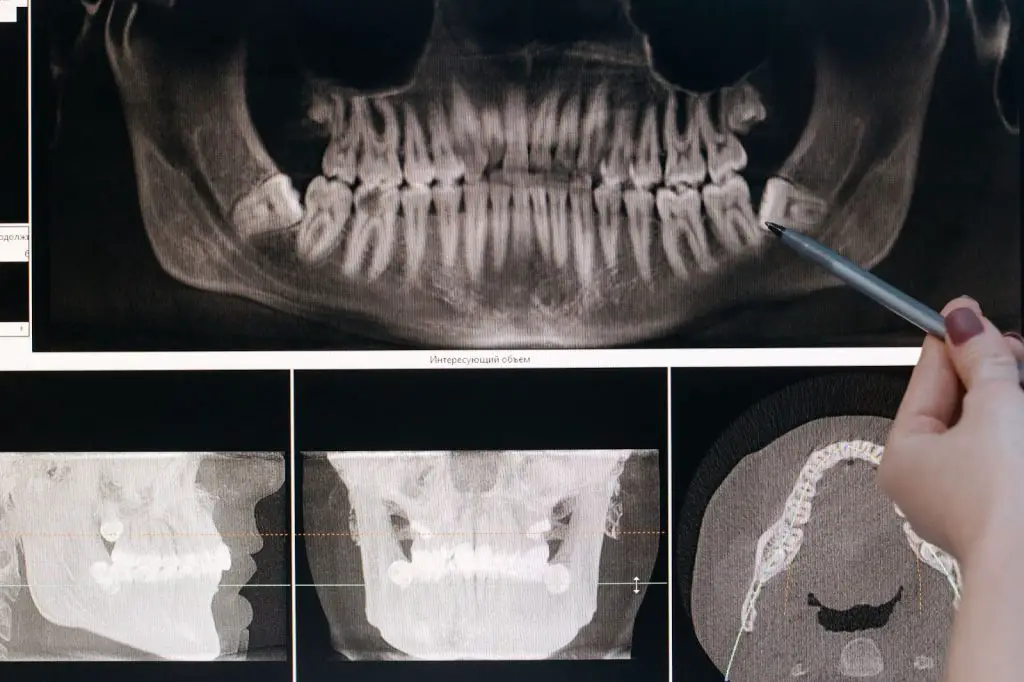
What do they do?
An oral and maxillofacial pathologist (OMP) performs a variety of tasks to diagnose diseases in the oral and maxillofacial region.
They:
- Remove diseased tissue for examination by laboratory technicians.
- Perform routine examinations to determine the presence or degree of periodontal disease or malignancy.
- Suggest treatment plans to patients who have been diagnosed with the oral disease based on their findings.
What degrees and skills are usually required?
A dental degree is a must-have requirement for this job, and 2 to 4 years of residency training. You should also have a license to practice.
Oral and maxillofacial pathologists should be attentive to details and have good communication skills.
Who’s hiring for these jobs?
Oral and maxillofacial pathologists work in dental schools, hospitals, clinics, and research laboratories. A few oral and maxillofacial pathologists work in private practice.
What’s the best way to get this job?
Check out job boards for opportunities you qualify for. Then apply to get started in this dental profession.
What’s it like to be an oral and maxillofacial pathologist?
https://www.youtube.com/watch?v=GOsgMjU1Ir4
#5. Oral and Maxillofacial Surgeon
How much do they get paid?
- Source: Glassdoor
- Low Range: $51,000 per year
- High Range: $443,000 per year
- Median Pay: $143,024 per year
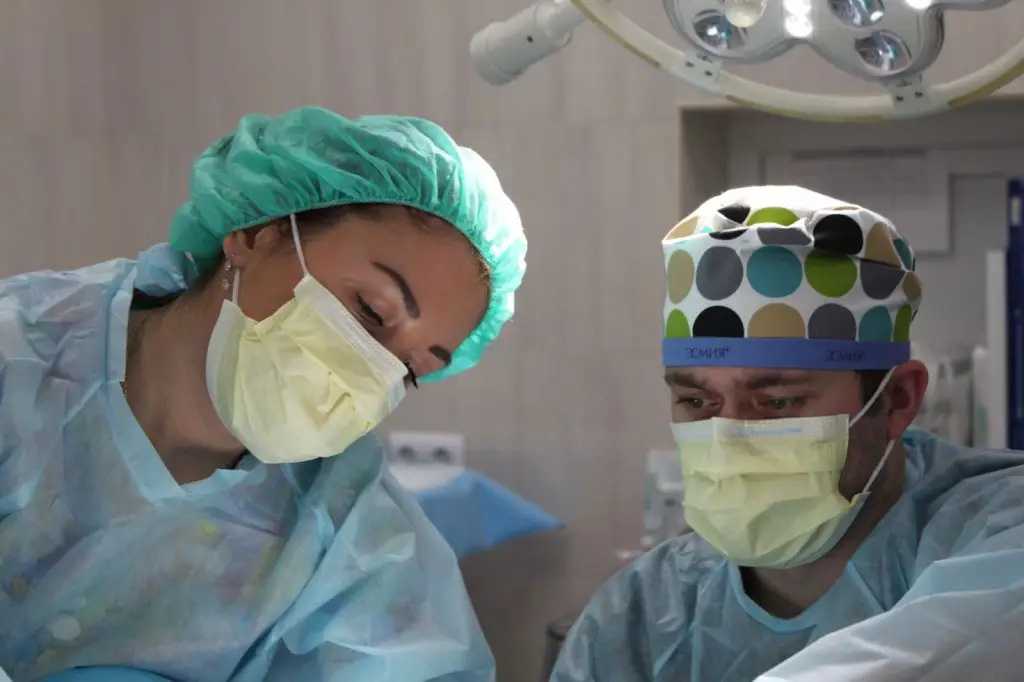
What do they do?
Oral and maxillofacial surgeons treat mouth, face, and neck problems. These healthcare professionals do sedation, teeth extraction, dental implants, and biopsy.
They go through the patient’s medical history to develop an action plan. This may involve X-rays.
What degrees are usually required?
You enroll for an undergraduate degree in a related field. Then attend medical school. You may practice as a general dentist before going for residency. But, most oral and maxillofacial surgeons complete a residency program after medical school, depending on which area of the body they want to specialize in.
An oral and maxillofacial surgeon must also pass a national licensing exam. This license is a prerequisite to practicing in most states.
Who’s hiring for these jobs?
As an oral and maxillofacial surgeon, you’ll work in a hospital, clinic, or government agency.
What is the best way to get this job?
You can start as an intern with an oral surgeon at a major teaching hospital in your area. Or you could start as a surgical assistant with a general surgeon, who will become your mentor during your internship.
You should work hard, be dedicated, and not be scared of sleepless nights.
What’s it like to be an oral and maxillofacial surgeon?
Similar Articles:
- 10 Highest Paying Environmental Jobs to Consider
- 10 Highest Paying Forestry Jobs to Consider
- 10 Highest Paying Immunology Jobs to Consider
#4. Periodontist
How much do they get paid?
- Source: Payscale
- Low Range: $100,000 per year
- High Range: $252,000 per year
- Median Pay: $176,000 per year
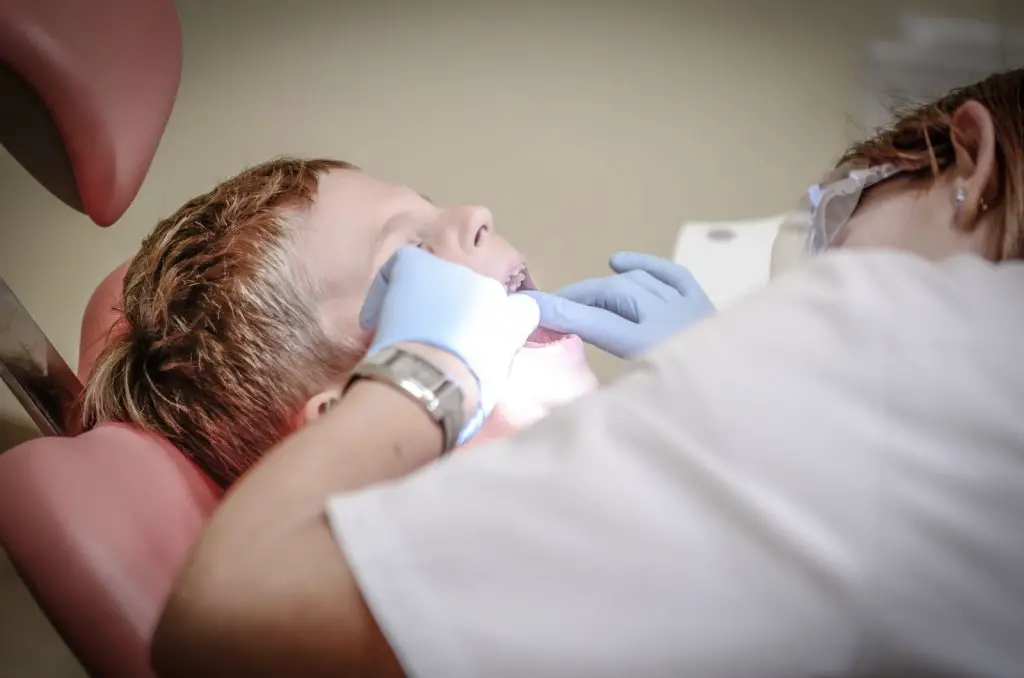
What do they do?
A periodontist is a dental specialist who treats patients with diseases, injuries, or defects of the gums. They do everything from running oral health checkups, fixing braces, and repairing fractures in teeth and gums.
These dental experts also remove braces.
What degrees and skills are usually required?
Most periodontists hold either a Doctor of Dental Medicine (DMD) or a Doctor of Dental Surgery (DDS) degree. You must also have completed a 3-year residency program that focuses on periodontics.
Periodontists should have excellent communication and interpersonal skills.
Who’s hiring for these jobs?
Periodontists work in private practices but may also work at hospitals as part of an emergency dental team.
What’s the best way to get this job?
Start by learning general dentistry before proceeding to periodontics. Then gain experience while working with a periodontist.
What’s it like to be a periodontist?
#3. Orthodontist
How much do they get paid?
- Source: Payscale
- Low Range: $88,000 per year
- High Range: $306,000 per year
- Median Pay: $192,726 per year

What do they do?
Orthodontists are professionals who specialize in the treatment of dental and facial irregularities. They use braces, retainers, and other appliances to straighten teeth, correct bites, and align jaws. Orthodontists also can correct cleft lip and palate, craniofacial deformities, and congenital disabilities.
What degrees and skills are usually required?
A Doctor of Dental Surgery (DDS) or Doctor of Medicine in Dentistry (DMD) degree must become an orthodontist. After graduating from dental school, orthodontists complete two to three years of additional training in an accredited orthodontic residency program.
As an orthodontist, you need good manual dexterity for working with small tools and instruments. The ability to interact with patients is important, and excellent interpersonal skills for dealing with staff members.
Who’s hiring for these jobs?
Orthodontists work in dental offices, clinics, or hospitals.
What’s the best way to get this job?
You may begin by gaining work experience with internship programs. Then send applications to positions requiring orthodontists.
Should you become an orthodontist?
Similar Articles:
- 10 Highest Paying Teaching Jobs to Consider
- 10 Highest Paying Medical Science Jobs to Consider
- 10 Highest Paying Material Science Jobs to Consider
#2. Endodontist
How much do they get paid?
- Source: Payscale
- Low Range: $98,000 per year
- High Range: $305,000 per year
- Median Pay: $202,000 per year
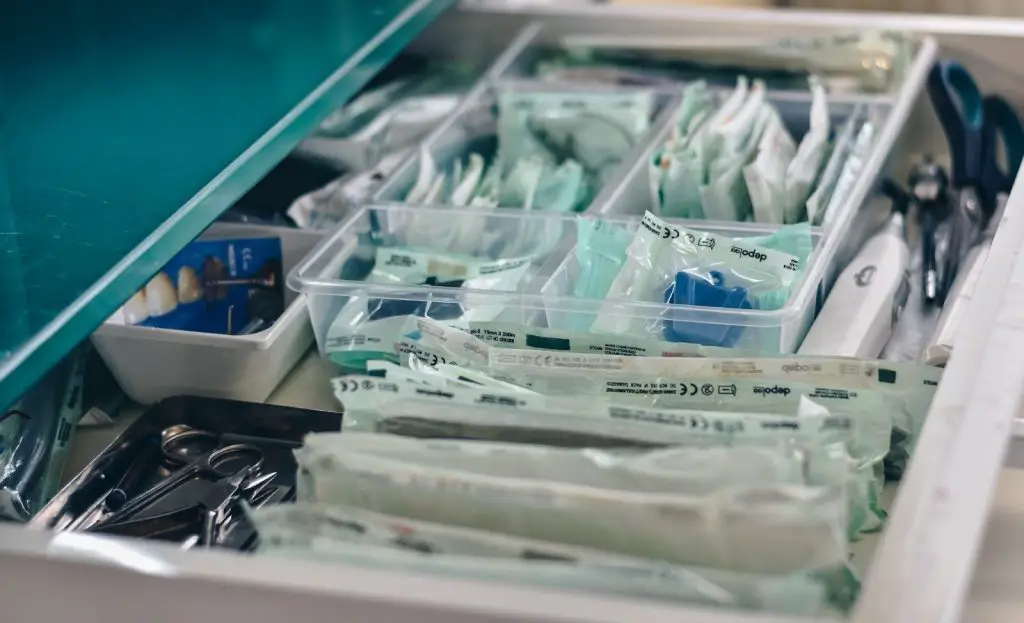
What do they do?
Endodontists are dentists who specialize in treating oral diseases related to the tooth pulp and surrounding tissues, including root canals.
These professionals are specialists in root canal treatment.
What degrees and skills are usually required?
You need an undergraduate degree to get a slot in any dental school. You’ll also need additional training to be an endodontist.
This profession requires one to have strong interpersonal skills, be detail-oriented, and be adept at manual dexterity.
Who’s hiring for these jobs?
Endodontists work in dental offices or hospitals and may be self-employed.
What is the best way to get this job?
With your certification, you may start by interning at a clinic and learn from established endodontists.
What’s it like to be an endodontist?
#1. Prosthodontist
How much do they get paid?
- Source: ZipRecruiter
- Low Range: $28,000 per year
- High Range: $364,000 per year
- Median Pay: $225,023 per year
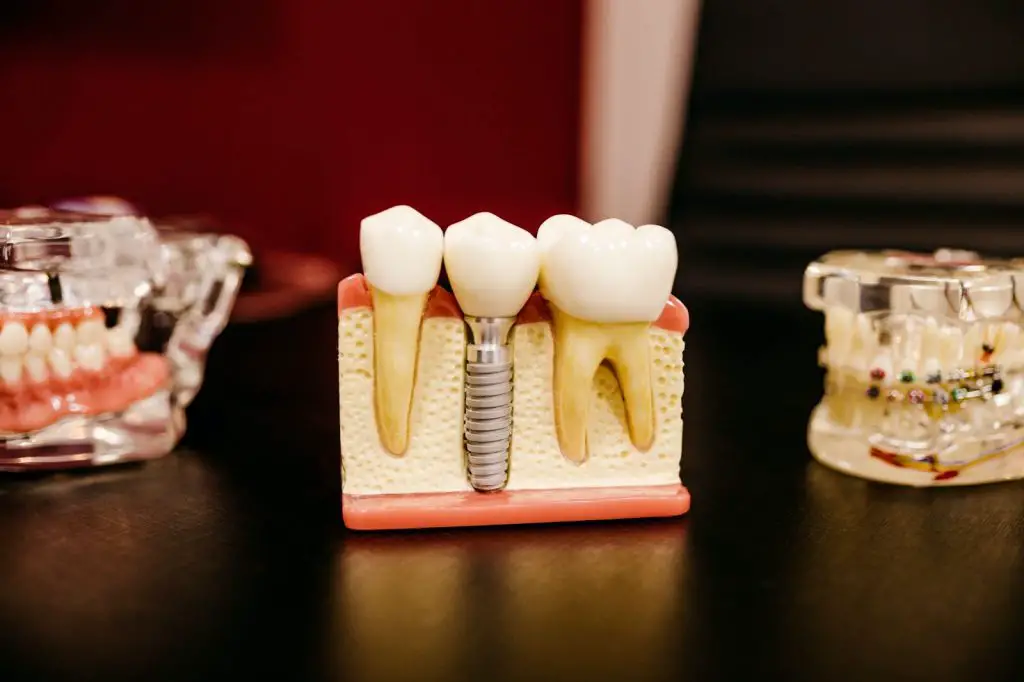
What do they do?
Prosthodontics is the highest-paid dental specialty on our list. These care professionals specialize in reconstructive dental work like bridges or dentures. Prosthodontists can also help out with issues like dental implants and crowns.
What degrees are usually required?
You’ll need a bachelor’s degree (which takes about four years), a four-year Doctor of Dental Surgery degree (DDS), then two more years at an accredited prosthodontic program.
Who’s hiring for these jobs?
Prosthodontists typically work in private practice or as part of a larger dental office. They can also provide dental services in hospitals and long-term care facilities.
What is the best way to get this job?
You can start by enrolling in an internship program upon completing your graduate studies. Then look for entry-level positions on job boards like Indeed.com.
Should you become a prosthodontist?
Similar Articles:
- 10 Highest Paying Math Jobs to Consider
- 10 Highest Paying Multidisciplinary Jobs to Consider
- 10 Highest Paying Sociology Jobs to Consider
Conclusion
There you have it, a collection of the best jobs for dentists. If you can find a job on this list, then we think that you’ve successfully found a good career choice. But if there are other awesome jobs out there that are not on this list, go ahead and let us know about them.
We love reading about jobs with flexible hours and job security.
Thanks for reading our post, and good luck with your search for Jobs for dentists.

